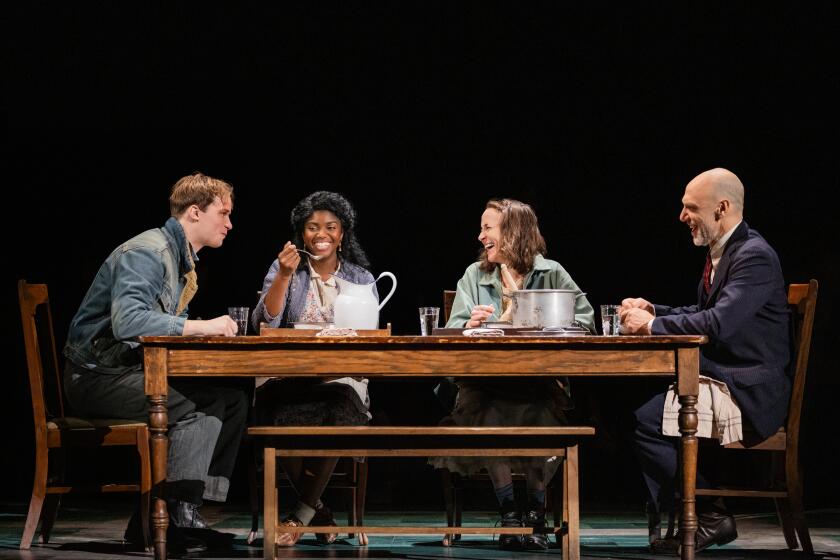MUSIC REVIEWS : Chamber Society Offers Program of Contrasts
In the chamber music canon, there aren’t many works as different as Mozart’s “Kegelstatt” Trio and Brahms’ Piano Quintet. Poles apart, they were bookends to the latest Los Angeles Philharmonic Chamber Music Society concert Monday night at the University of Judaism’s Gindi Auditorium.
The Quintet, a product of considerable slaving by its composer (it existed in two earlier versions, one eventually destroyed), is a heated, intricate, brawny and worried composition, a tank barreling at 85 m.p.h., a gorilla with a sentimental heart. Mozart’s “Kegelstatt,” on the other hand, is as easygoing as they come, open in countenance, simple in beauty. Mozart is said to have composed it while playing skittles, a game similar to bowling.
It was fascinating to contemplate these differences Monday, as amply underlined by Philharmonic players and pianist Stephen Kovacevich. In the hands of violist Meredith Snow, clarinetist Monica Kaenzig and Kovacevich, the “Kegelstatt” emerged light and gracious, but never shallow, with aptly languorous rather than lilting tempos. There were delicate touches and rich voicings throughout from the pianist, who had a skip in his step at the finale.
The Brahms was as heavy and thrilling as ever, but the taut ensemble of pianist and string quartet (headed by violinist Bing Wang) managed also to shimmer in its calmer moments. Kovacevich found countless details, little urgencies and emphases, and brought out the dark, rumbling lower registers of Brahms’ piano.
Yet, in between, it was Mendelssohn’s String Quintet No. 2, as played by a crack team fronted by violinist Mitchell Newman, that brought out the bravo birds. A typically well-made and euphonious work from its composer, with much in common (including key) with the earlier Octet, it nevertheless, for the gentleman in J139, missed the mark: This is Mendelssohn pushing buttons. Spiffy performance though.
More to Read
The biggest entertainment stories
Get our big stories about Hollywood, film, television, music, arts, culture and more right in your inbox as soon as they publish.
You may occasionally receive promotional content from the Los Angeles Times.






